8 Things Attracting Wasps to Your Yard, Experts Say

For most of us, any buzzing insect is enough to make our skin crawl and send us running in the other direction. But big, fuzzy wasps can be particularly fear-inducing, especially since a wasp sting can cause everything from a minor painful skin reaction to a serious anaphylaxis allergic reaction. Therefore, it would make perfect sense if you want to keep your yard wasp-free this summer. To help you achieve this goal, we spoke with pest experts to find out the biggest things attracting these insects, so you can swiftly remove them and enjoy a buzz-free outdoor space.
RELATED: 5 Plants That Will Keep Bees Out of Your Yard, According to Pest Experts.
1
Fruit trees
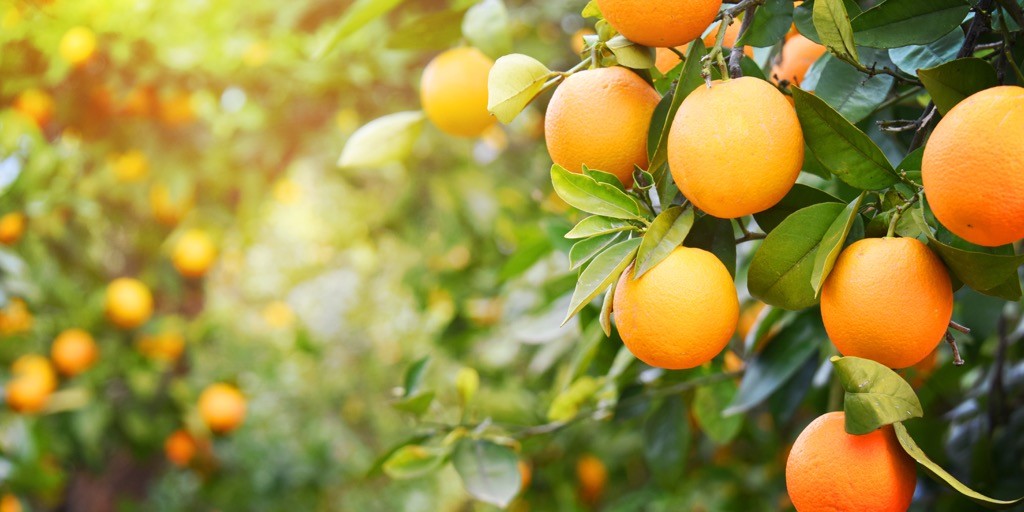
Those fruit-bearing trees on your property may provide you with healthy treats, but they could also be providing a home for wasps.
“Wasps and other stinging insects are highly attracted to human foods, especially sugary ones,” insect expert Josh Matta, a senior biologist for Spectrum Garden Brands, tells Best Life.
Be sure to pick up any fallen or rotten fruit as soon as possible to mitigate the risk of wasps.
2
Food scraps
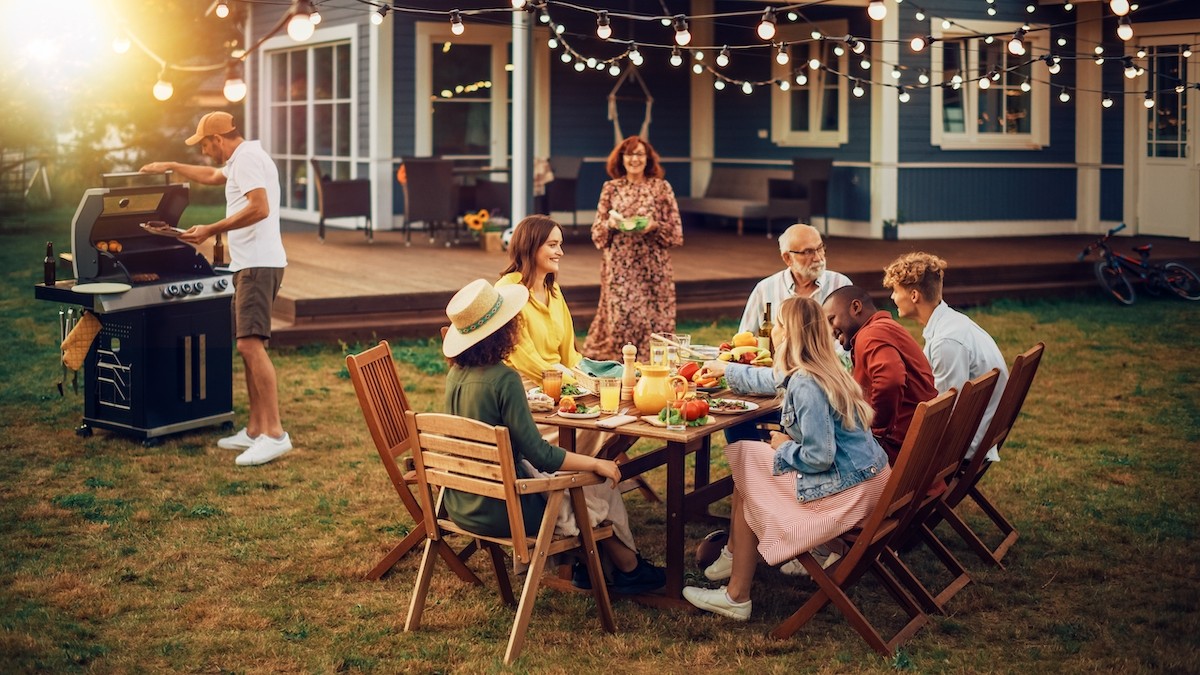
Likewise, any food left lying around from dining al fresco is prime wasp territory.
Jim Fredericks, PhD, chief entomologist and vice president of public affairs at the National Pest Management Association (NPMA), says open cans of soda and fruit juices are especially attractive to their sweet tooth.
He adds that wasps are also attracted to protein, so leftover scraps from BBQs can also draw them to your yard.
“When dining outside, keep food and drinks covered until ready to eat, and clean up any spills and food scraps immediately,” he suggests. “Keep trash cans covered and sealed, and regularly empty and clean the bins to remove food residue.”
3
Sweet fragrances
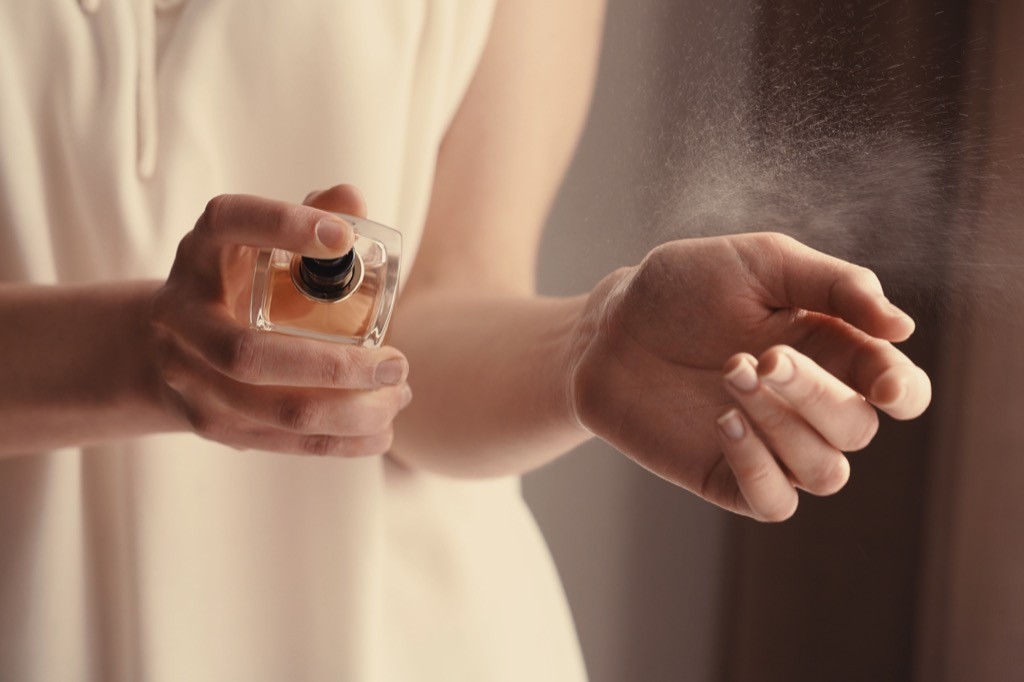
It’s not just sweet foods that wasps like; they’re also attracted to sweet-smelling fragrances like perfumes and lotions.
According to the Centers for Disease Control and Prevention (CDC), banana-scented personal care products are particularly attractive to wasps.
RELATED: 4 Soaps and Scents That Repel Mosquitoes, Experts Say.
4
Untreated wood
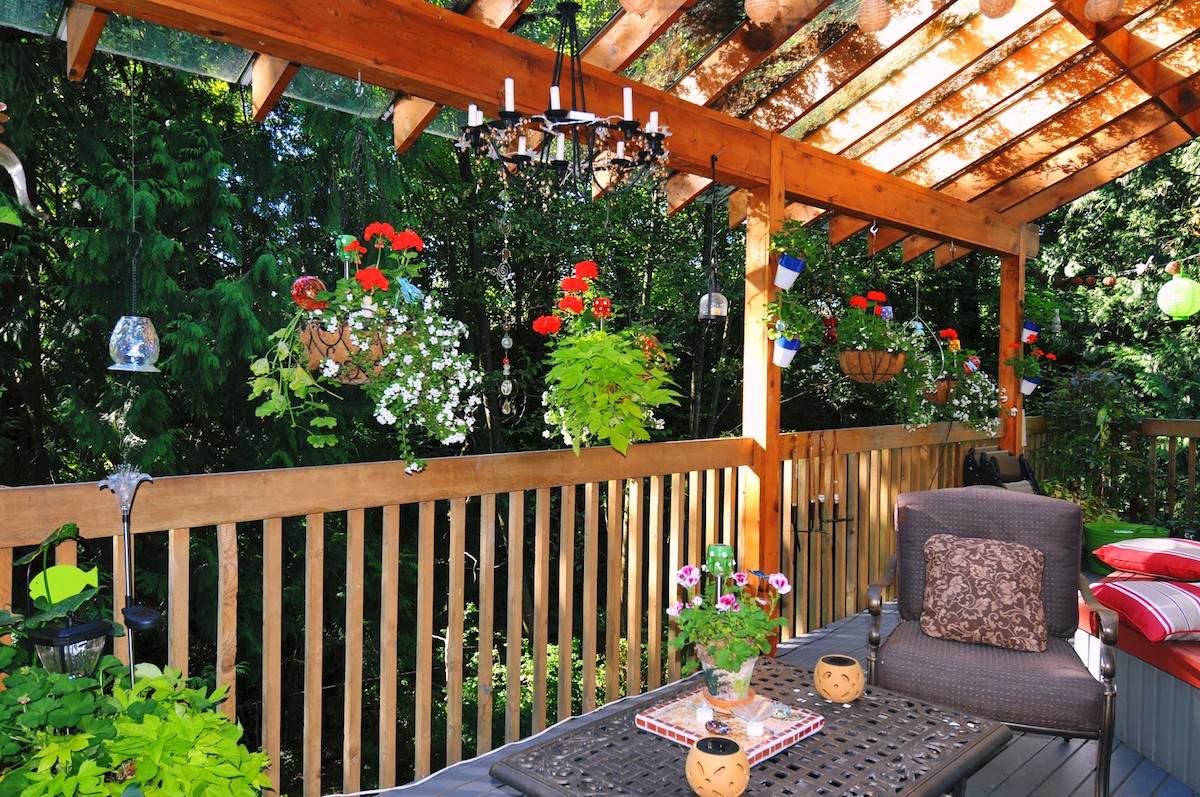
Your home’s unpainted wood gives it a rustic look—and it could also be the reason behind the wasp problem on your property.
“Wasps will chew on unpainted wood to get pulp to build their nests. Decks, swings, or play sets, or other unpainted or untreated wood can be attacked,” explains Nancy Troyano, PhD, a board-certified entomologist with Ehrlich Pest Control.
However, there is a solution to this unpleasant problem: “By painting or staining wood, you can eliminate these items as an optimal raw material source for wasps,” Troyano says.
5
Brightly-colored flowers
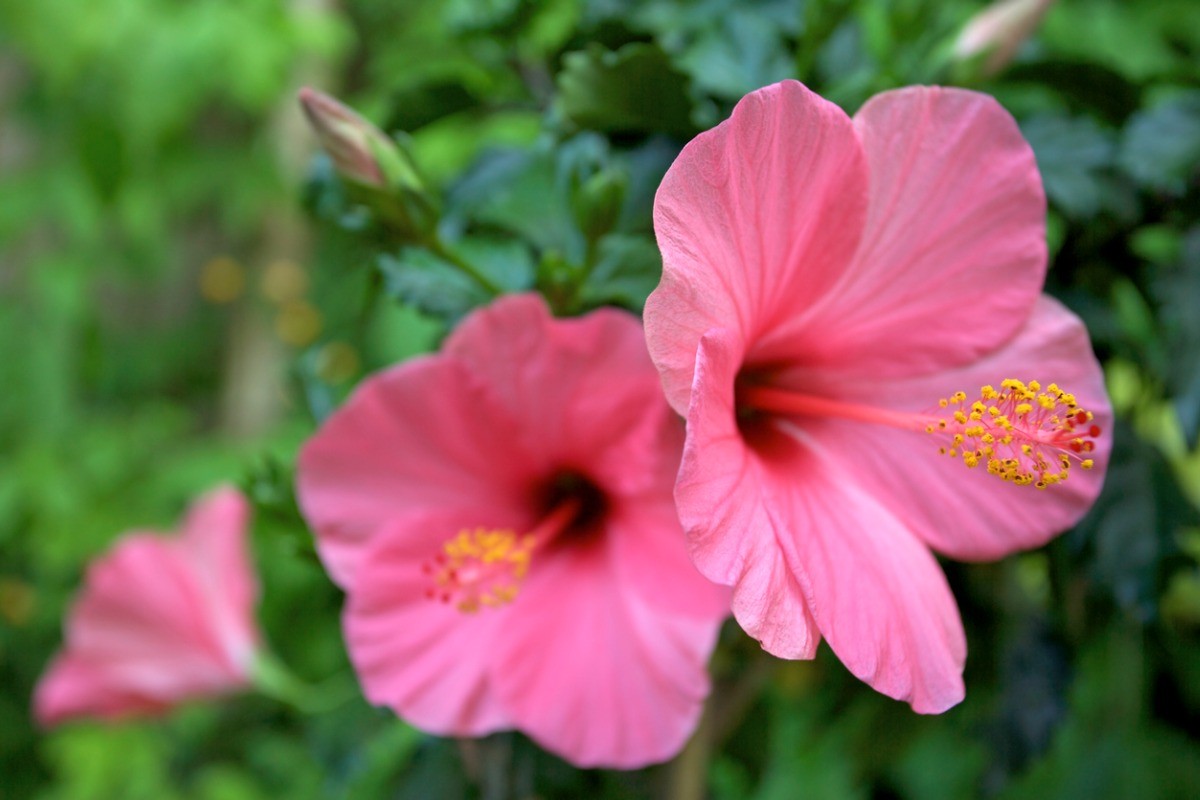
Those brilliantly-colored flowers in your yard don’t just look good to you—they look pretty good to your local wasp population, too.
“Wasps are attracted to bright-colored flowers, so any plant with bright floral patterns in the garden or backyard will attract wasps,” explains entomologist Alice Sinia, a quality assurance manager at Orkin Canada.
Fredericks points out that floral-printed and brightly-colored clothing can also attract wasps, as can sweet-smelling flowers.
Allan Bossel, operations expert at BBE Bed Bug Exterminator, shares that there is a way to keep your favorite flowers while deterring wasps: “Some plants like marigolds, mint, and eucalyptus… naturally repel wasps and could work well as barriers around plants that attract wasps.”
6
Standing water
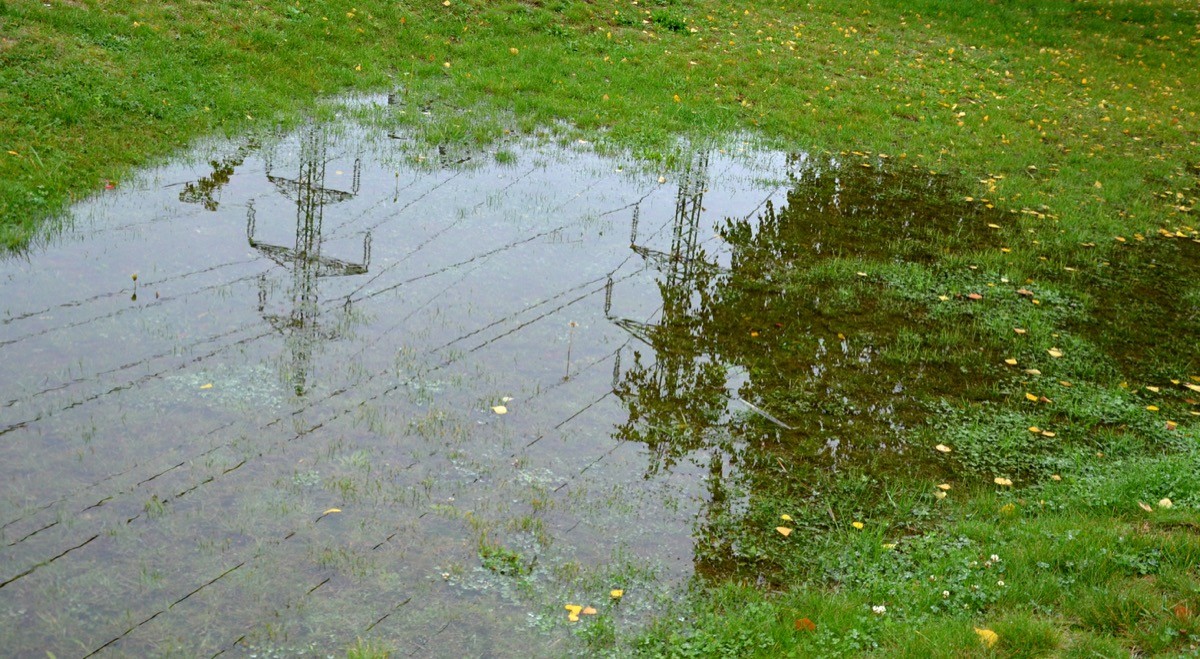
While getting some rain in your yard may help keep your plants healthy this summer, if you have standing water, it may not be long before you have wasps, too.
“Running faucets, ponds, fountains, pools, and other water features may attract wasps looking for a drink of water,” says Jordan Foster, a pest management expert with Fantastic Pest Control.
Though your pool and water features likely aren’t going anywhere, Foster notes that cleaning up any other standing water on your property can help keep a wasp problem at bay.
RELATED: 5 Signs That Invasive Insects Are Slowly Killing Your Trees.
7
Sheltered nooks
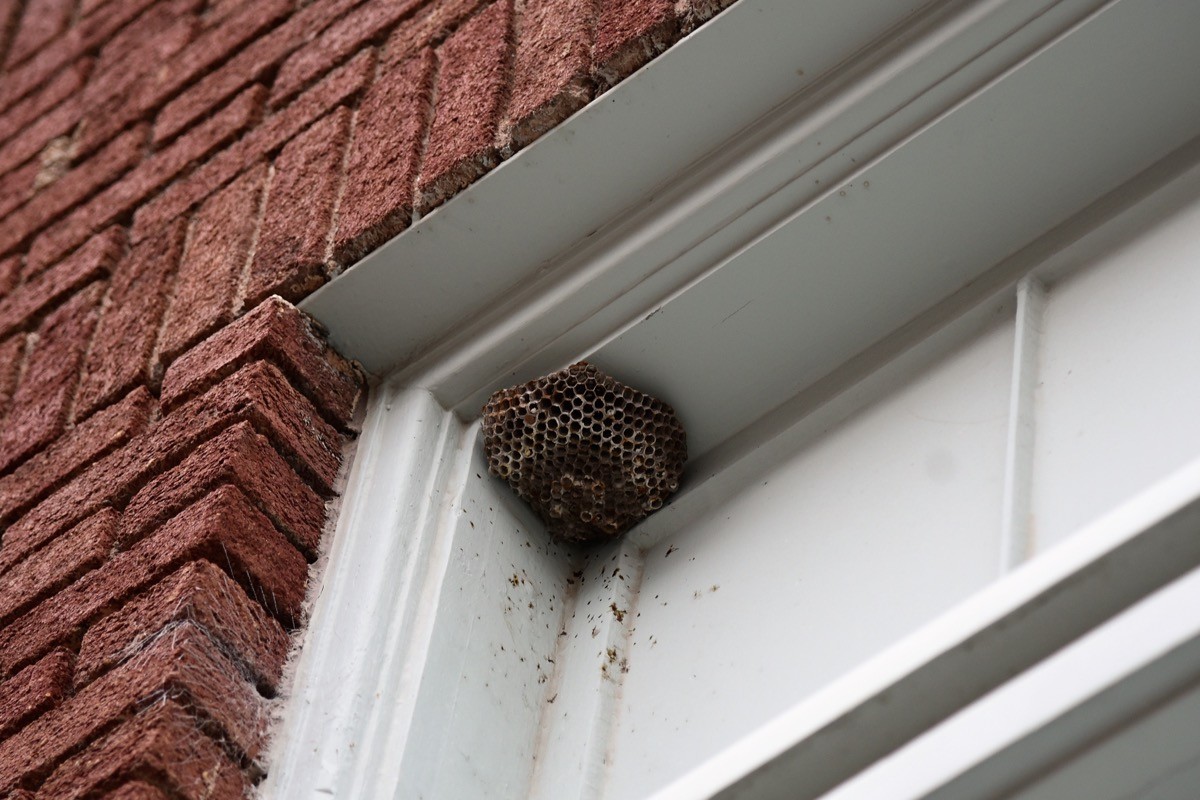
Wasps are always on the lookout for sheltered areas to build their nests.
“These can be found in eaves, overhangs, trees, shrubs, and even underground,” notes Fredericks. “Some stinging insects will build their nests inside the walls of buildings.”
To ensure wasps don’t take up residence, he recommends regularly inspecting your property for potential nesting sites and sealing and cracks or crevices in walls where they could build a nest.
8
Bug infestations
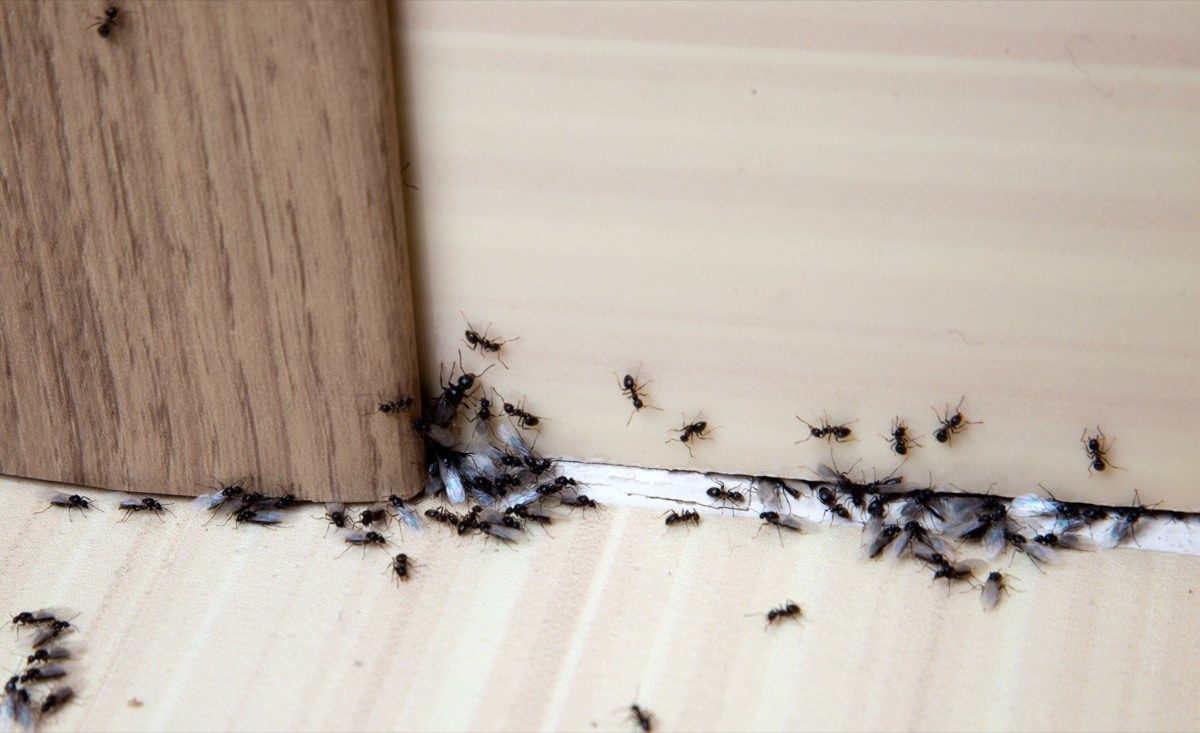
To add insult to injury, your home’s existing bug problem could be attracting wasps to your space.
“One of the benefits of wasps is that they help to control the populations of insects by eating bugs. However, if wasps determine that your home has a good supply of other bugs, they may create a nest,” says Mike Charles, owner of Unified Pest Control.
What to do if you have wasps in your yard:
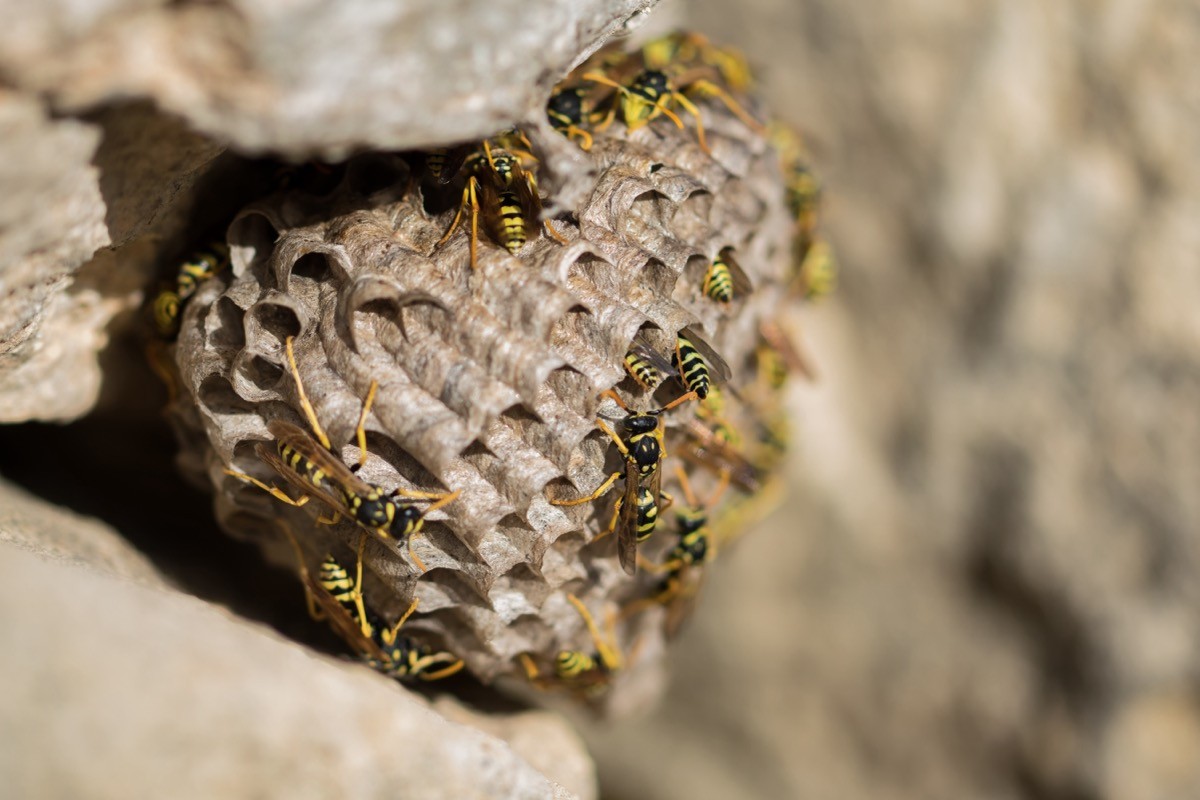
If all else fails, and you do encounter a wasp problem, Fredericks says it’s best to remain calm and quiet. “Avoid swaying or swinging, as this may provoke an attack,” he advises.
“If you find a wasp nest, it’s best to contact a qualified pest control professional to safely remove it,” he adds. “Wasps can be aggressive and dangerous when their nests are disturbed.”